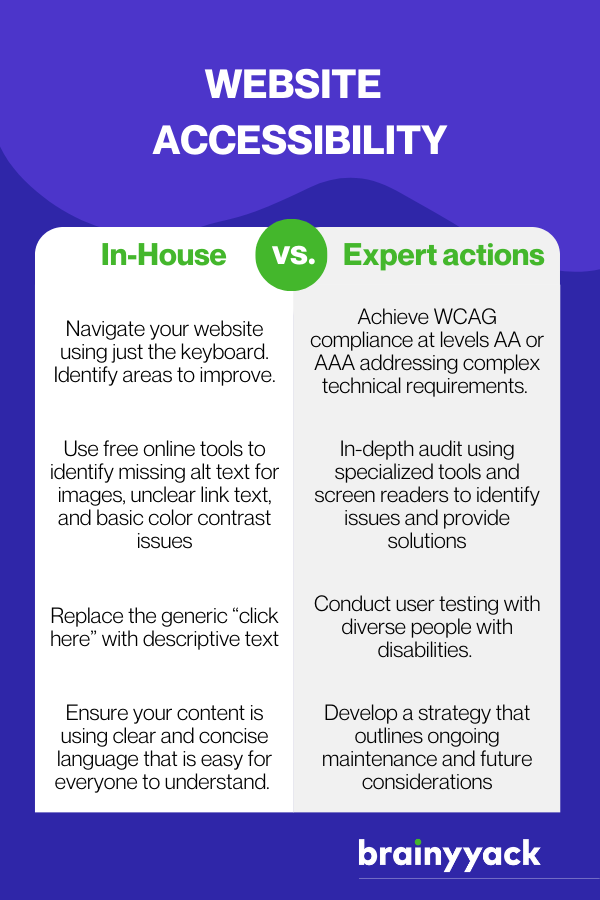Digital accessibility has become a business priority given that more brands are more committed with diversity, equity, and inclusion (DEI), and understand the importance of creating accessible digital experiences for their potential customers.
In this article, we will walk you through the basics such as the concept of website accessibility, and its importance for your business. Later we will discuss the reasons to consider working with an accessibility expert, and the aspects you should consider when looking for a website accessibility partner:
Why website accessibility is important for your business?
Reasons to consider working with an accessibility expert
Aspects to evaluate when looking for a website accessibility partner
Website accessibility is a group of ongoing best practices implemented in the design and development of websites to ensure that any visitor can access and navigate seamlessly regardless of any impairment they might have.
Maintaining website accessibility is not a one-time task during launch. It requires ongoing attention, it is a journey and needs to be checked fast and continuously because of evolving regulations, the importance of avoiding potential legal action, and ensuring that the latest content provides a consistent and inclusive user experience for everyone.
Probably if your business does not have a large team dedicated to accessibility, or your current team does not have the expertise or the proper tools, you should consider finding an expert consultant who can partner with you in the journey of ensuring your website is accessible.

This site is protected by reCAPTHCHA and the Google Privacy Policy and Terms of Service apply.
© Brainyyack 2025. All Rights Reserved
